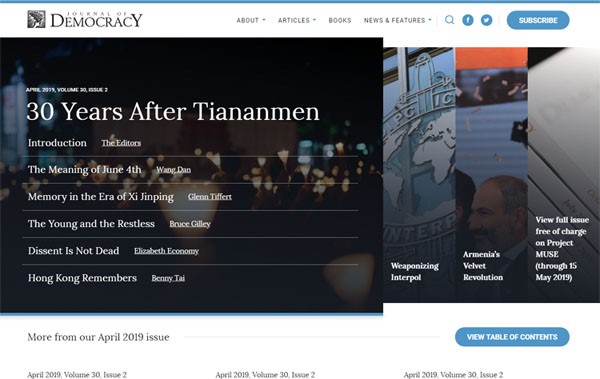
One hundred years after thousands of Chinese students marched on Tiananmen Square in a watershed revolt, President Xi Jinping seized on the event Tuesday to burnish his brand of authoritarian nationalism, The New York Times reports.
Macau University lecturer Choi Chi U said Xi’s speech, in emphasizing patriotism, distorted the original intentions of the movement, which campaigned to reform China through democracy and science, however.
“The May Fourth movement was definitely patriotic in spirit, but the more important issue for the scholars of Peking University was the question of how China should go forward, using science and democracy,” Choi told Radio Free Asia.
“There was nothing about obedience to the party and socialism; it was never mentioned,” he said. “This is is purely about the Communist Party controlling the May Fourth movement [narrative], and it runs counter to history and deviates from reality.”
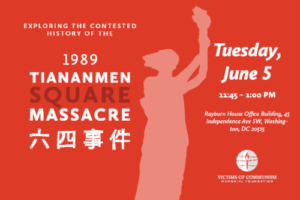 Chinese constitutional scholar and historian Zhang Lifan agreed, RFA adds.
Chinese constitutional scholar and historian Zhang Lifan agreed, RFA adds.
“The May Fourth movement came against a background of the campaign fora new kind of culture,” Zhang said. “It was a time of ideological awakening and liberation, based on science and democracy.”
The party is also grappling with slowing growth that has magnified its fear of popular unrest. Officials have told schools to guard against displays of discontent around May 4 and other “sensitive” dates, according to notices on government websites, The Times adds.
“From the start of the school term, they told us that this is no ordinary year and is very sensitive, so don’t speak out of line,” said Guo Yuhua, an outspoken professor of sociology at Tsinghua University.
China’s youth are growing up in a more manipulated information environment than their parents’ generation or their foreign counterparts, notes Freedom House analyst Sarah Cook. There is a very real danger that this generation will be less open-minded, more nationalistic, more supportive of authoritarian rule, and more isolated from a common set of facts and norms that previously facilitated peaceful international exchanges.
China’s ruling Communist Party seems powerful at the moment, but China is at a crossroads, notes Benny Tai, associate professor of law at the University of Hong Kong. The kinds of cultural changes seen in Hong Kong may be coming to China before long.
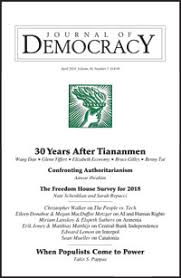 When the generation that grew up amid unprecedented economic and physical security becomes the pillar of society, the demand for greater political freedom and more self-rule may become unstoppable, he writes for The Diplomat, in an essay drawn from an article in the April 2019 issue of the National Endowment for Democracy’s Journal of Democracy. When a substantial number of people in China demand democratic change, it will be a moment of great opportunity for Hong Kong’s democracy movement as well. We must do everything we can now to prepare ourselves so we are ready to rise to the challenge of that moment when it arrives, adds Tai, who was recently sentenced to 16 months in prison for his role in organizing Hong Kong’s 2014 Umbrella Movement.
When the generation that grew up amid unprecedented economic and physical security becomes the pillar of society, the demand for greater political freedom and more self-rule may become unstoppable, he writes for The Diplomat, in an essay drawn from an article in the April 2019 issue of the National Endowment for Democracy’s Journal of Democracy. When a substantial number of people in China demand democratic change, it will be a moment of great opportunity for Hong Kong’s democracy movement as well. We must do everything we can now to prepare ourselves so we are ready to rise to the challenge of that moment when it arrives, adds Tai, who was recently sentenced to 16 months in prison for his role in organizing Hong Kong’s 2014 Umbrella Movement.
A fight between the United States and China is brewing over 5G and the question of who can be trusted to control the world’s wireless infrastructure. But scant attention is being paid to an issue of arguably greater importance to the future of the world’s economy and security: China’s control of the raw materials necessary to the digital economy, Foreign Policy reports:
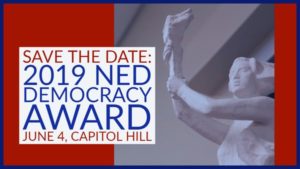 FP Analytics has produced the first consolidated review of this unprecedented concentration of market power. Without rhetoric or hyperbole, this fact-based analysis reveals how rapidly and effectively China has executed its national ambitions, with far-reaching implications for the rest of the world.
FP Analytics has produced the first consolidated review of this unprecedented concentration of market power. Without rhetoric or hyperbole, this fact-based analysis reveals how rapidly and effectively China has executed its national ambitions, with far-reaching implications for the rest of the world.
The US Capitol hosts a rally to commemorate the 30th anniversary of the Tiananmen Square Massacre and to highlight the continued suppression of the Chinese people by the Chinese Community Party. Speakers will include witnesses of the Tiananmen Square Massacre in 1989, activists, and policymakers, including Victims of Communism Caucus Co-Chair Rep. Chris Smith (R-NJ) and Co-Chair of the Congressional-Executive Commission on China Rep. Jim McGovern (D-MA).
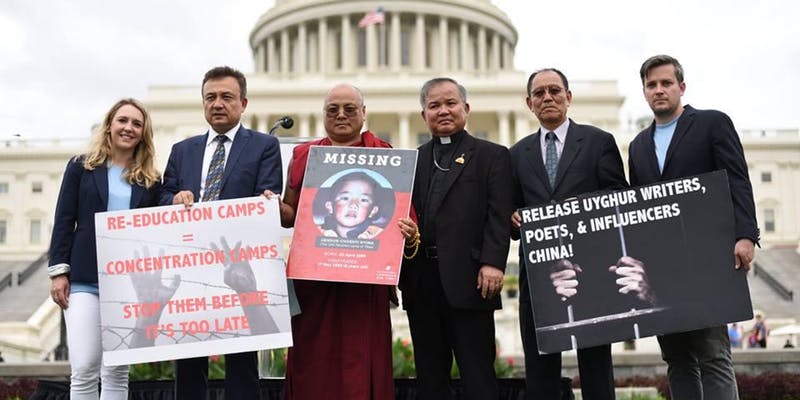
Victims of Communism







